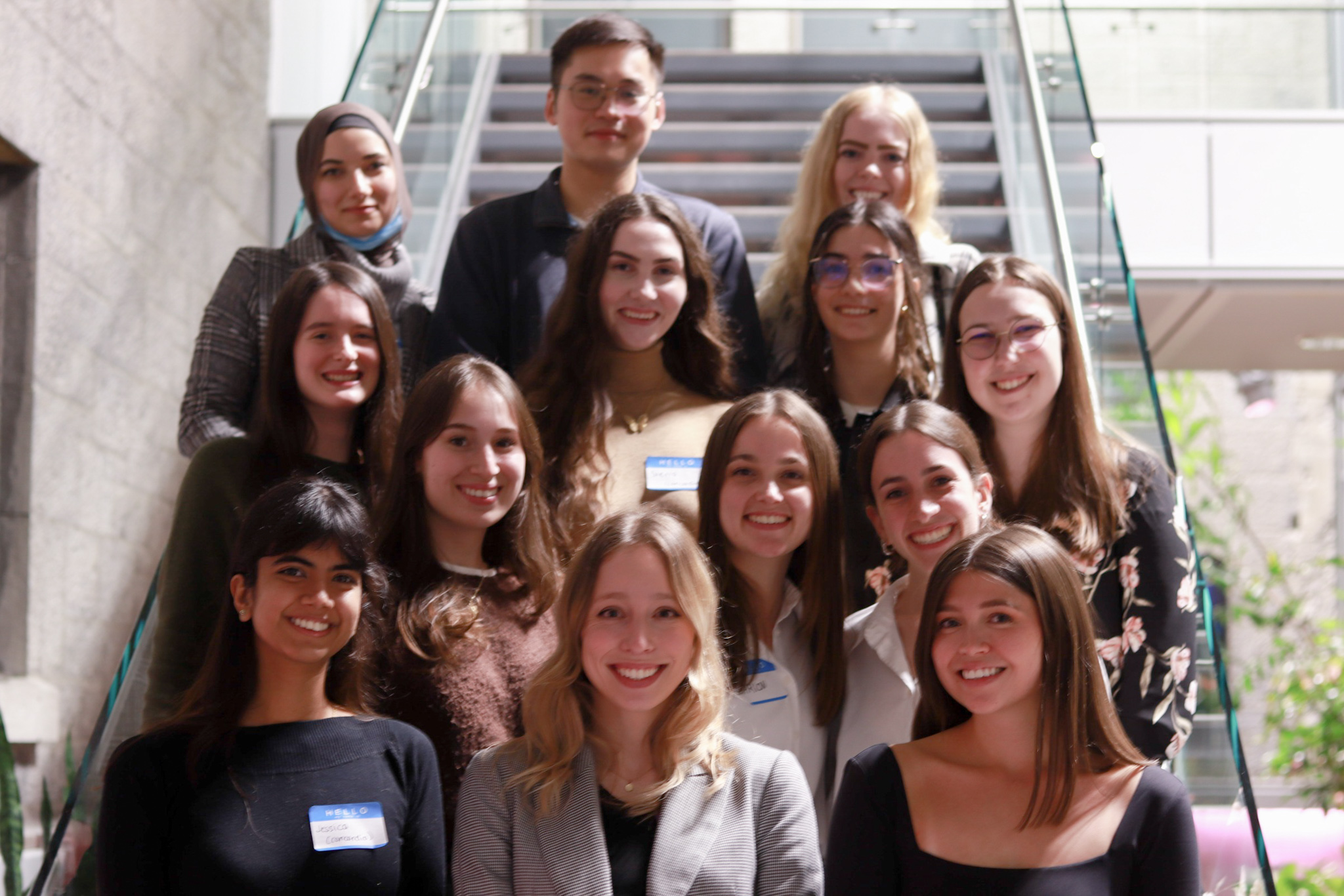This years Parkinson’s Awareness Month kicked off with the first in-person iteration of the Parkinson’s Awareness Symposium
On Friday, March 25 student representatives from Concordia University, McGill University, and The Université de Montréal gathered at the Montreal Neurological Institute for the second annual McGill x Concordia X Udem 2022 Parkinson’s Awareness Symposium.
The Parkinson’s Awareness symposium is an annual collaboration between Concordia Students for Parkinson’s (CSP), McGil Students for Parkinson’s Awareness and Parkinson UdeM, aimed at promoting awareness for Parkinson’s disease across the three universities
The three-hour long event featured presentations from a variety of guest speakers relating to the study and treatment of Parkinson’s disease. One other highlight of the event was a charity prize raffle, with the proceeds going directly to Parkinson’s Quebec.
Aymée Bray, third-year Concordia student and VP External for CSP, said “The goal for tonight was to get people out we wanted to get researchers out to talk about their work, to get the perspective of our presenters that are living with Parkinsons, and also to get students out in order to give hope to the patients that are also in attendance.”
As the first in-person iteration of the conference, the theme of this year’s symposium was dedicated to demystifying Parkinson’s disease within the general public. Each presentation by the event’s keynote speakers was devoted to examining a unique perspective relating to Parkinson’s disease.
One of the headliners of last week’s symposium was Sarah Humphrey, Parkinson’s activist and cofounder of the Montreal-based organisation Parkinson en Mouvement. Humphrey’s approach to the symposium was based on her experience living with Parkinson’s disease. These experiences led her to organise dance classes as a form of treatment.
Dr. Dalla Bella, Co-Director from the International Laboratory for Brain, Music and Sound Research (BRAM) at the University of Montreal, presented cutting edge research on the effectiveness of rhythm-based games, as a form of treatment for motor-based diseases like Parkinson’s.
The symposium also gave those who have been personally affected by the disease the opportunity to find a sense of belonging within a larger community.
“I was motivated to get involved with the club [CSP] because my grandfather passed away from Parkinsons,” Bray said. “I thought that getting involved would be the best way to give back to the Parkinson’s community.”
Bray’s experience was one shared by many organisers and attendees of last week’s symposium, including McGill faculty member Dr. John Gillard.
“My dad developed Parkinson’s disease later in life,” said Dr. Gillard. “It was very hard to understand in the beginning and I just had to watch it, unfortunately, progress over a period of two years until his demise.”
However, Dr. Gillard remains impressed by the ability for Montreal’s student groups to unite across language barriers and university rivalries in the fight against Parkinson’s.
“The fact that we have three universities in Montreal coming together, and see the enthusiasm of the students, then to realise they are undergraduates, and then to have the dynamism to bring together these exceptional speakers is exceptional!”
Photos provided by Lucas Marsh
